
Cirque's arty installation at the Las Vegas Sand's Macau unit, Zaia, originally slated for a ten year run, has suffered "disappointing ticket sales," and will, after just three-and-a-half years, be shut down. I am not all that surprised.
Macau, a developing tourist destination and the only place in China were gambling is legal, saw its gaming revenue leap 42 percent in 2011 to a record $33.47 billion, said to exceed Vegas tables by five or six times. But they are evidently having a hard time luring gamblers away from their addictions to consider the world of entertainment, or so say the reports.
Be that as it may, I am not surprised because, while in China in 2010, during my interview in Beijing with Tian Run Min, a scholar of the Chinese acrobatic arts scene and its history, he told me something I had not known: Cirque du Soleil has far from conqured the middle kingdom. "CDS some years ago toured Hong Kong, not a success."
Min then pointed to Shanghai, where , "they perform for one week, ok, people love it, but they can't come to China more often because too expensive. It's a luxury show. I think in China, we cannot play Cirque du Soleil, we can't, because [we are a] different culture."
Min also cited the importance of the clown in a Cirque show, comparing it to how, in a typical Chinese acrobatic troupe, "that's our weak point. We have a different sense of humor." In fact, and Min would be the first to admit --- and rue --- there are virtually no comedy acts in a typical Chinese acrobatics outing.
I also know how the Chinese may not be nearly as wowed by Cirque-like production values as they are by the clean athleticism of traditional acrobatics. While in Shanghai, I attended with my friend Boyi Yuan two very different shows, one night the avant-garde ERA Intersection of time, which was directed by a group of Canadians, among them Cirque's noted choreographer, Debra Brown; and, the next night, a threadbare staging in an aging old theatre of some good solid acrobatic acts. Boyi came alive during the latter show, appearing to derive more enjoyment from the simple spectacle. In fact, he told me he liked that show better than ERA.
For all of its international fame and marketing genius, Cirque has yet to conquer the entire world, and likely never will. But China is still a strong possibility. Maybe if Iris flops at the theatre previously known as the Kodak in Hollywood, they can try it in Macau at the Sand's.
Showbiz David explores aspects of the contemporary Chinese circus scene in his new book, Inside the Changing Circus: A Critic's Guide
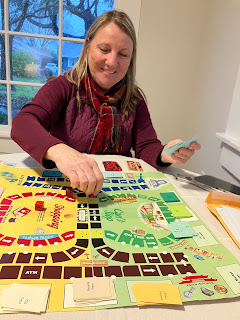



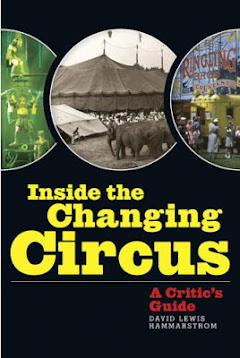
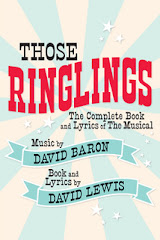
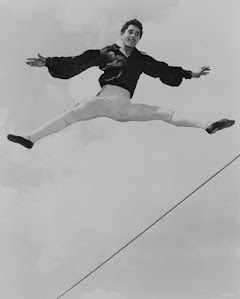
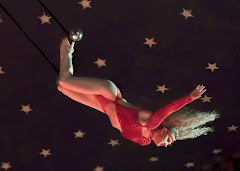



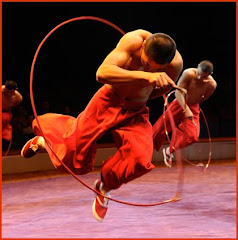
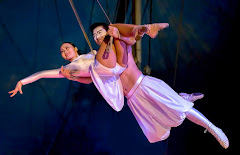

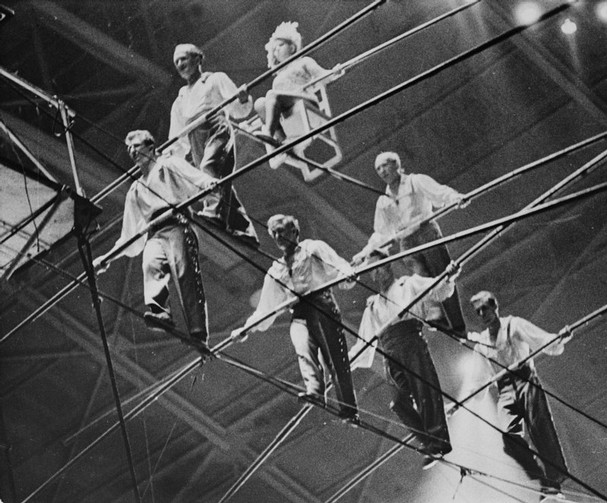

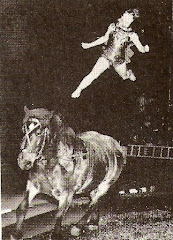
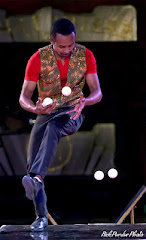
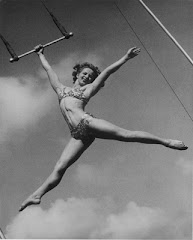


No comments:
Post a Comment